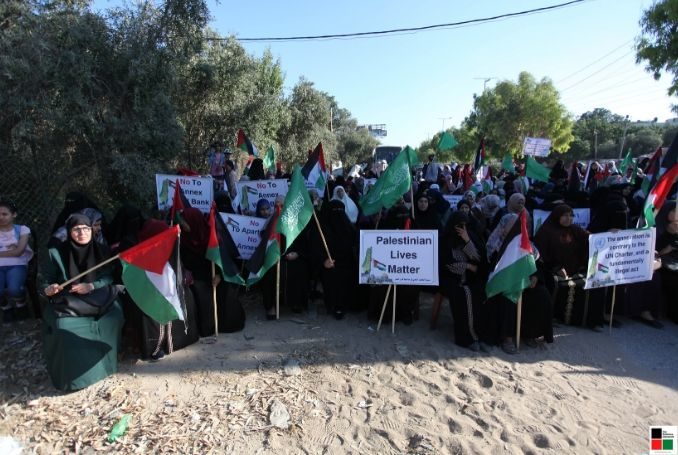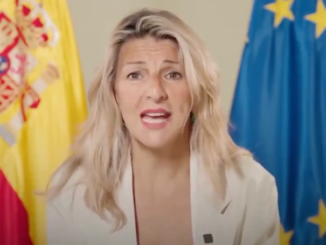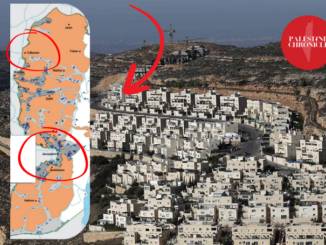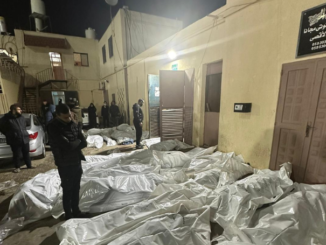
By Benay Blend
In The Future Home of the Living God (2017), Louise Erdrich (Ojibwe) writes of a dystopic future that might as easily be today. In Erdrich’s novel, Cedar Hawk Songmaker, adopted Ojibwe child of Minneapolis liberals, finds herself at 26, pregnant, at a time when the world might be running backwards, maybe sideways, in decidedly mysterious ways. Returning to her tribe, Cedar participates in what Grace Dillon terms “returning to ourselves,” a process of recovering traditional values in order to survive “our post-Native apocalypse world” (Walking the Clouds: An Anthology of Indigenous Science Fiction, 2012, p.12).
According to Cedar’s step dad Eddy, Native apocalypse has already taken place. “Indians have been adapting since before 1492,” he tells Cedar, so he figures they will continue to endure. The world, he concludes, is always “going to pieces” (p. 28), so this feels this is no different than before. As the novel closes Cedar’s future does not look good, perhaps because in the end she is left to carry her burdens all alone. But for the Ojibwe, who recoup traditional ways, there is a communal path to sovereignty based on self-determination, a vision also for an ethics of care and connectedness to nature.
Erdrich’s novel encompasses a cycle of historical trauma but looks a better future in which the tribe takes advantage of the crisis to regain their stolen land (p.213). In much the same way, Gazan journalist Wafaa Aludaini describes how Palestinian sumoud (steadfastness) serves to counter the dire situation of her people.
Because of her career, Aludaini has covered “every type of Israeli aggression” against the Gaza Strip, but she has continued undeterred. For the first time, since the onset of coronavirus, Aludaini says, she is afraid, not because of being killed at her job, but “about potentially bringing death home to [her] loved ones.”
Like the Indigenous on Turtle Island, Palestinians are living in a post-apocalyptic world. In the Gaza strips, notes Aludaini, there have been “draconian lockdown measures” since the 1980s when Israeli forces first imposed curfews and isolated towns and villages.
“Palestinians, especially those in the Gaza Strip,” says Aludaini, “are used to living under harsh lockdowns. That’s why some things haven’t really changed much,” she goes on, and so what is happening with the virus is considered normal.
While the situation is dire, Gaza’s legendary resilience prevents the people from succumbing to what Ramzy Baroud calls a discourse of despair, a logic that he describes as not only “self-defeating, but ahistorical as well. Throughout history,” Baroud continues, “every great achievement that brought about freedom and a measure of justice to any nation was realized despite seemingly insurmountable odds.”
This “optimism of the will,” as Baroud describes it, explains the many creative ways that youth groups and organizations have found to alert people to the need for social distancing and other forms of self-protection. “Creative drawings on medical face masks, sand sculptures, cartoon illustrations, mural painting and roaming clowns” are only a few of the measures that Aludaini says are being used to educate people about the need to be proactive.
Because of the blockade, there are other problems, too. “We have no materials whatsoever in Gaza,” explains Ismail Abu Skheila, a Gazan engineer. There are no “skill shortages,” though, he continues, an advantage that has led to the development of low-cost ventilators that will help in the emergency.
From her coronavirus diary, Aya Al Ghazzawi writes that “the coronavirus is just another siege, a quarantine inside a quarantine.” At the end of a grueling day, compounded by no electricity, excessive heat, and lack of water, she asks a question that had been pestering her all day: “Is it fair to equate the suffering of the world with ours?” In response, her mind replies “an emphatic, hell no!”
Yet, in the Americas, Indigenous people have been subject to Occupation since the European invasion over 500 years ago. As Cedar’s step-dad said, Indians were already coping with various crises before the pandemic hit, so perhaps they are also more capable than the larger population of dealing with it now.
Due to high poverty and unemployment rates, a lack of clean drinking water and electricity, and stark health disparities, many of the same factors that have impacted Gaza, Covid-19 has had repercussions in Indian Country much higher than surrounding states.
Added to all of that, decades of inadequate funding, warns Acee Agoyo, expose faultlines in Indian health care since the coronavirus hit. As states across the country are reopening from closures, tribal communities also bear “the brunt of the pandemic,” writes Stanley Bohlen, Chief Executive Officer of the National Indian Health Board. Statistics from Montana, New Mexico, Oregon, South Dakota and Wyoming confirm that Native people are suffering from higher rates of cases than the general population.
Pueblo and Navajo communities, along with the rest of Indian Country, have had to deal with long-term issues in much the same way as Gaza. For example, Creede Newton, writing for Aljazeera news, the pandemic has exposed the inadequate food infrastructure on the Navajo nation.
Already too spread out, full-service supermarkets are now at a premium since several of them closed. Indeed, Denisa Livingston, an organizer with the Diné Community Advocacy Alliance (DCAA), charges that the Navajo Nation has long experienced “food apartheid” (certainly the latter a word familiar to Palestinians), a term she prefers to “food desert” because of the lack of easily accessible stores.
While food issues are escalating, Livingston adds, “at the same time resilience has been escalating,” very much like the sumud that Baroud and Aludaini describe above. “Returning back to our ways has been a critical point now in learning from a crisis like this,” Livingston concluded.
Livingston lists “cultivation of food at the home, making physical checks on elders in the community as opposed to using mobile phones, and other forms of community support, including food deliveries to at-risk homes” as part of this return to traditional ways.
In fact, these are practices that were in place through other Indigenous groups before the pandemic hit. For example, The Red Nation, in coalition with Pueblo Action Alliance and Seeding Sovereignty, has continued its weekly Solidarity Feed for unsheltered Black and Indigenous relatives as well the distribution of care packages in the community.
The Red Nation extends its Mutual Aid efforts across the country, such as providing trash pickup, wood, and Personal Protection Equipment (PPE) to Oglala Lakota relatives in the Pine Ridge reservation.
While the rest of the world focuses on how soon the economy can reopen, Indigenous societies in the Americas and Palestine focus on mutual aid, a communal effort, which has always been part of their cultures. Just as the Ojibwe in Erdrich’s novel survive through their long-held connectedness to nature, so do groups like Seeding Sovereignty advocate taking food production back into local control.
“Food security was a huge issue here in our traditional Tiwa territory,” writes Jovita Belgarde. Also known as Albuquerque, Tiwa land is home for urban tribal populations who are focusing on growing their own gardens. “We began helping people get their gardens ready to plant,” Belgarde continues.
“We pulled weeds, tilled the ground, began composting, held indigenous seed exchanges, built garden boxes and began planting. We created training to teach others planting skills so everyone’s gardens would be more successful. For those of us who are boots on the ground in indigenous communities, we know that we can’t wait around for colonizers to save our people who have been historically overlooked. We have to save ourselves. Planting our own food is the answer.”
From planting Indigenous gardens to roaming clowns in Gaza, all of these efforts support Baroud’s belief in “Optimism of the Will.”
“While logical analysis of a situation may lead the intellect to despair,” he concludes, “the potential for social and political revolutions and transformations must keep us all motivated to keep the struggle going, no matter the odds.”
– Benay Blend earned her doctorate in American Studies from the University of New Mexico. Her scholarly works include Douglas Vakoch and Sam Mickey, Eds. (2017), “’Neither Homeland Nor Exile are Words’: ‘Situated Knowledge’ in the Works of Palestinian and Native American Writers”. She contributed this article to The Palestine Chronicle.

– Benay Blend earned her doctorate in American Studies from the University of New Mexico. Her scholarly works include Douglas Vakoch and Sam Mickey, Eds. (2017), “’Neither Homeland Nor Exile are Words’: ‘Situated Knowledge’ in the Works of Palestinian and Native American Writers”. She contributed this article to The Palestine Chronicle.







